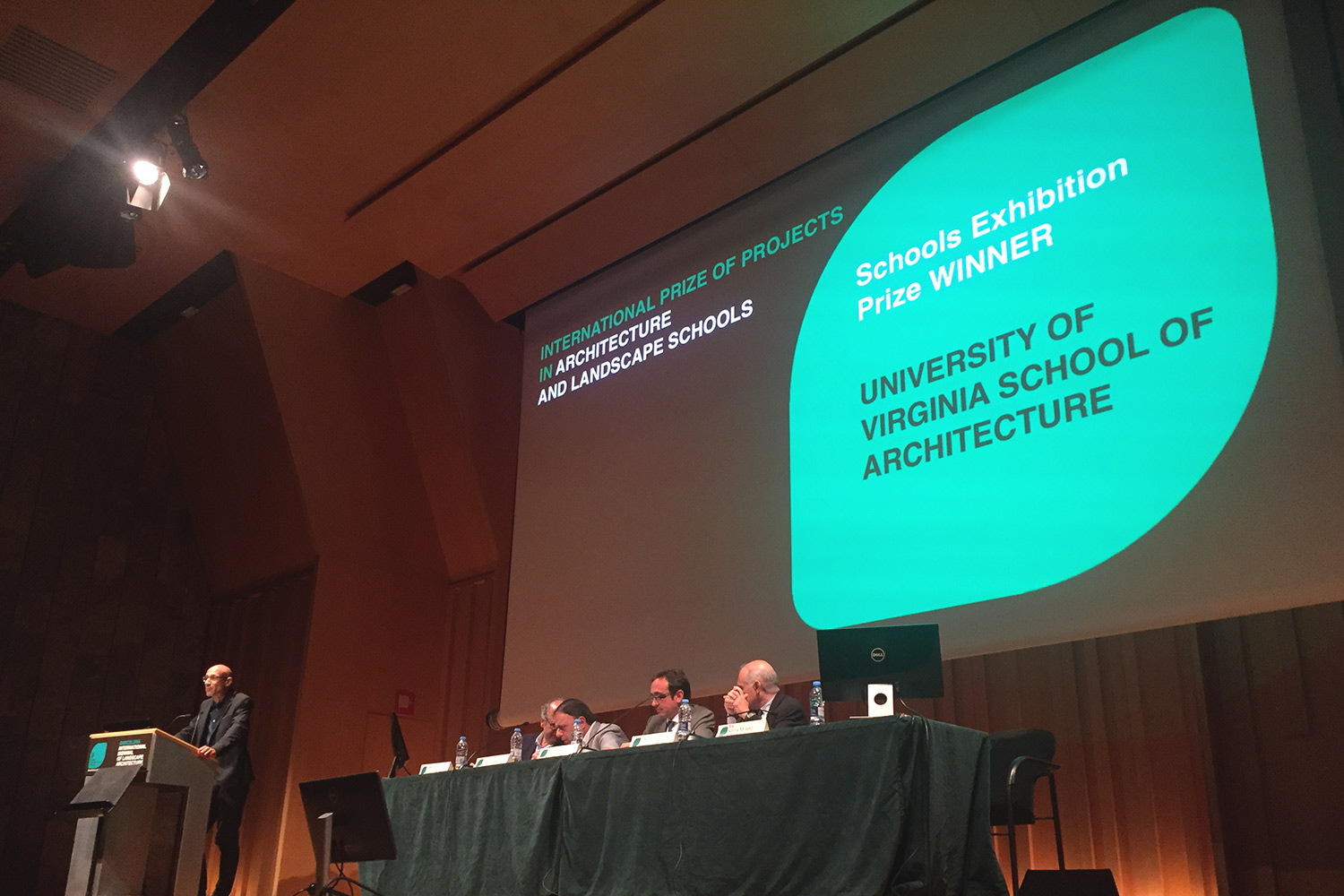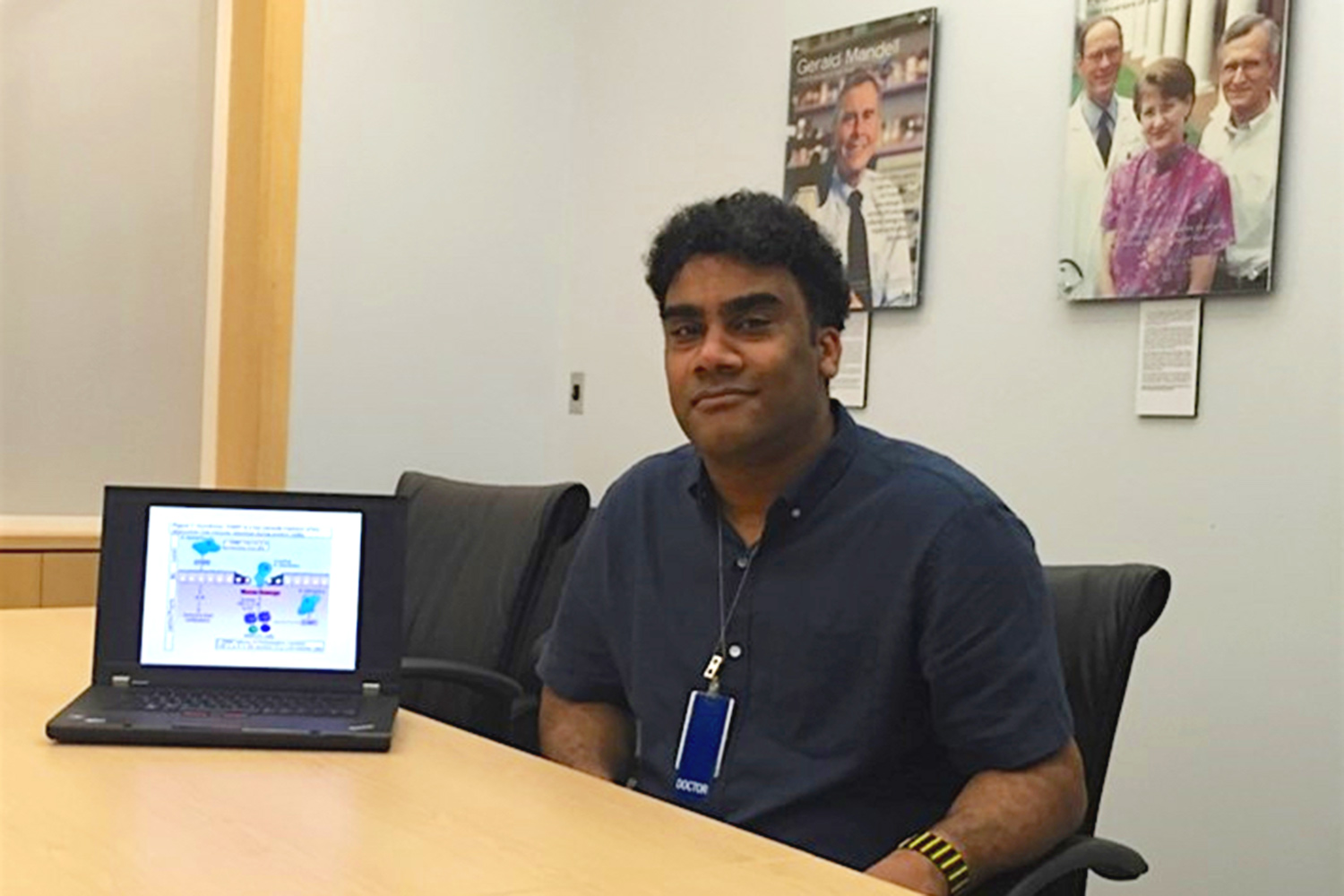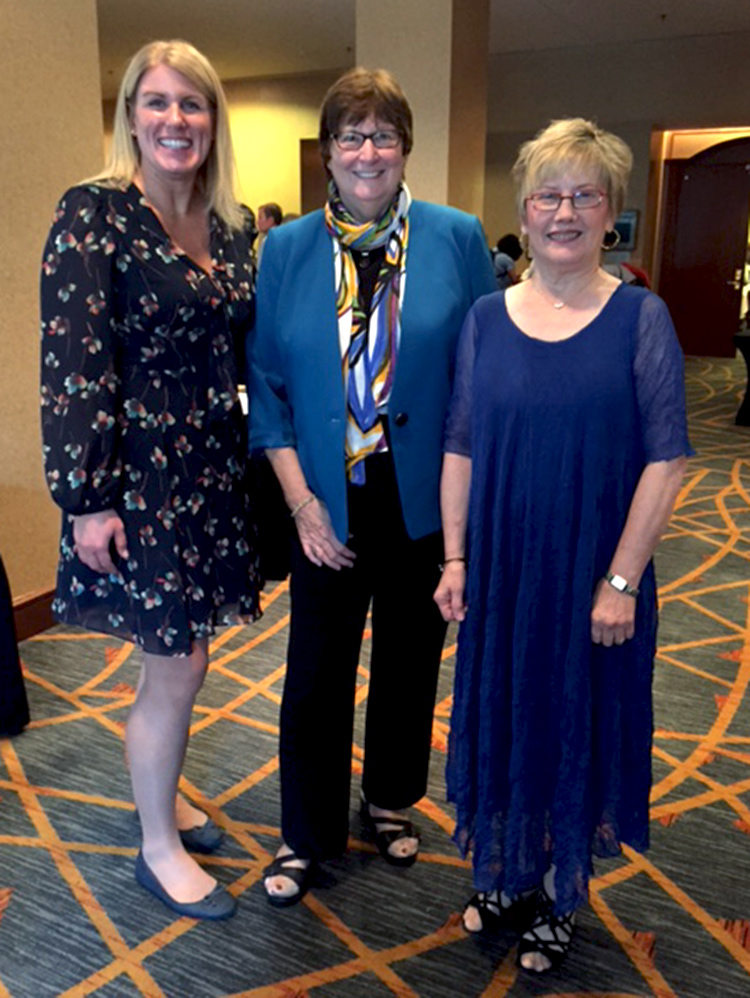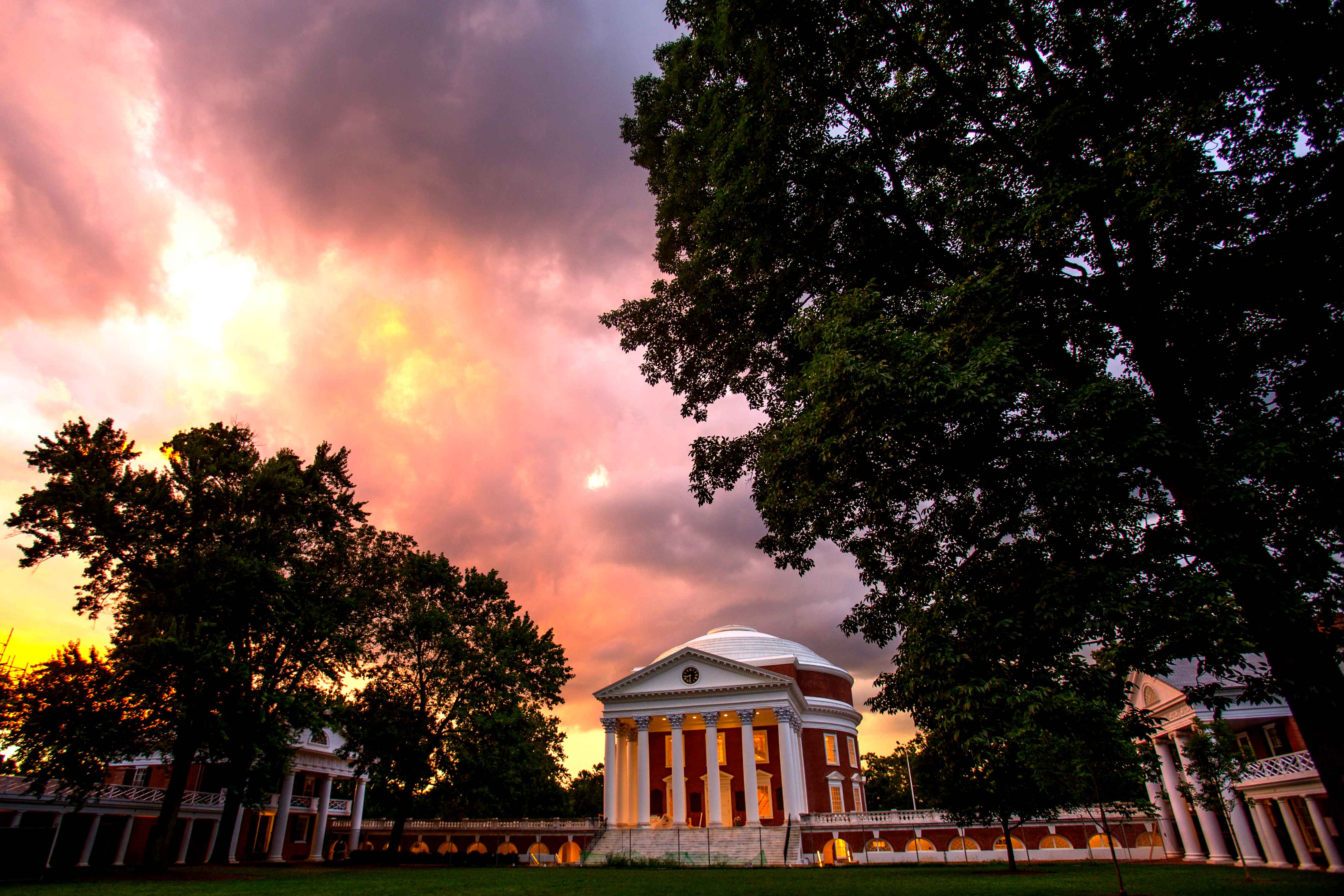For the fourth straight year, the University of Virginia School of Medicine has received the Health Professions Higher Education Excellence in Diversity Award from INSIGHT Into Diversity magazine.
As a recipient of the Health Professions HEED Award – a national honor recognizing U.S. medical, dental, pharmacy, osteopathic, nursing and allied health schools that demonstrate an outstanding commitment to diversity and inclusion – the School of Medicine will be featured, along with 30 other recipients, in the December issue of INSIGHT Into Diversity magazine, the oldest and largest diversity-focused publication in higher education.
INSIGHT Into Diversity selected the School of Medicine based on the institution’s success on how it values, engages and includes diverse faculty, staff, students, patients and suppliers.
Beyond a short-term project or a narrow initiative, UVA’s School of Medicine has a comprehensive approach that promotes the fundamental transformation of the school’s culture by embedding and practicing inclusion in every effort, aspect and level of the institution.
“The Health Professions HEED Award process consists of a comprehensive and rigorous application that includes questions relating to the recruitment and retention of students and employees – and best practices for both, continued leadership support for diversity, and other aspects of campus diversity and inclusion,” said Lenore Pearlstein, publisher of INSIGHT Into Diversity. “We take a holistic approach to reviewing each application in deciding who will be named a HEED Award recipient. Our standards are high, and we look for institutions where diversity and inclusion are woven into the work being accomplished every day across their campus.”
UVA’s Landscape Architecture Program Earns International Recognition
The School of Architecture won top honors at the ninth European Landscape Biennial, held Sept. 29 to Oct. 1 in Barcelona, hosted by the Association of Architects of Catalonia and the Polytechnic University of Catalonia.

The UVA School of Architecture took top honors at the ninth European Landscape Biennial in Barcelona.
An international jury selected UVA’s entry – which comprised nine projects, including five from its “Recentering Delhi” initiative – as the winner of the International Prize for University Projects.
Projects were selected on the basis of originality, methodological rigor and innovation potential. The jury narrowed the original 10 finalists to UVA and the University of Pennsylvania; UVA emerged as the winner for adhering closest to the biennial’s theme of “Tomorrow’s Landscapes,” which stressed innovation for the future, said Iñaki Alday, Quesada Professor of Architecture, who attended the biennial.
Selected projects were part of an exhibition at the Technical School Superior of Architecture of Barcelona that remains on view through Oct. 19. The exhibition will move through several European universities afterward.
Artificial Pancreas Researcher Honored in His Hometown
Dr. Daniel R. Chernavvsky, an assistant professor of research in psychiatry and neurobehavioral sciences affiliated with UVA’s Center for Diabetes Technology, has received the “Personalidad Destacada de la Ciudad Autónoma de Buenos Aires en el Ámbito de las Ciencias Médicas (Outstanding Personality of the Autonomous City of Buenos Aires in the Field of Medical Sciences)” award from the city of Buenos Aires for his work on the artificial pancreas.
He received the tribute Sept. 20 from Argentinian Congresswoman Claudia Calciano during a ceremony in the Argentine Legislature’s Eva Peron Hall in Buenos Aires.
Chernavvsky, a native of Argentina, visited with two other UVA faculty members, Marc Breton and Boris Kovatchev, the latter being the director of the Center for Diabetes Technology and one of the pioneers of the artificial pancreas technology. Chernavvsky and colleagues from Harvard University and the University of Padova, Italy presented the research behind the technology at an academic conference, and the UVA trio stayed on to set up a collaboration with Argentine institutions to conduct the first clinical trial of the artificial pancreas held in South America.
Becker’s Hospital Review Honors UVA Medical Center CEO
Pamela M. Sutton-Wallace, chief executive officer of UVA Medical Center, was recently named as one of “12 female CEOs making their mark in health care” by Becker’s Hospital Review, a national health care publication.
“As CEOs, these 12 women have positively impacted their hospitals and health systems, and the greater health care industry,” according to Becker’s.
Sutton-Wallace has served as UVA Medical Center’s CEO since July 2014. Earlier this year, she was recognized as one of “10 Minority Executives to Watch” by Modern Healthcare and among the Top Blacks in Healthcare by BlackDoctor.org.
“Adding to her hospital industry expertise, Ms. Sutton-Wallace also has a strong grasp of the pharmaceutical, insurance and research industries,” Becker’s said in its overview of her achievements.
Keisha John Wins Diversity Role Model Award
For creating new programs designed to increase minority student interest in research and scholarship, Keisha A. John, director of diversity programs in UVA’s Office of Graduate and Postdoctoral Affairs, has been named a National Role Model by Minority Access Inc.
John collaborates with various UVA offices to lead and coordinate University-wide activities designed to recruit, mentor and foster success among a diverse body of graduate and professional students, as well as postdoctoral scholars, especially those from underrepresented groups.
“Since her arrival to UVA in 2015, Keisha has played a key role in creating several new programs designed to increase minority participation,” wrote Dr. Marcus Martin, UVA vice president and chief officer for diversity and equity, in his letter of nomination.
Working with the Leadership Alliance, a national group devoted to increasing the minority population in academia and the workforce, John brought to the Grounds the Leadership Alliance Mellon Initiative, an eight-week national summer fellowship program devoted to increasing the number of demographically underrepresented students pursuing graduate studies in the humanities, education and social sciences.
This summer, she implemented the First Year Research Experience program in partnership with the University’s Office for Diversity and Equity and the Virginia-North Carolina Louis Stokes Alliance for Minority Participation. In its inaugural year, 20 students from minority-serving institutions across the nation participated, conducting research with chemistry or physics professors.
Minority Access Inc., a nonprofit organization that gives the annual award to a select group of faculty, administrators, students and other leaders, honored this year’s awardees at the 17th National Role Models Conference, held Sept. 30 to Oct. 2 in Washington, D.C.
UVA Doctor Earns Prestigious Faculty Development Award
Dr. Shannon Moonah of the School of Medicine has received the Robert Wood Johnson Foundation’s Harold Amos Medical Faculty Development Program Award, offered to faculty members of historically disadvantaged backgrounds with the intention of helping them achieve a senior rank in academic medicine and, in turn, furthering diversity in the realm of medicine.
Award recipients serve as a support network and role models for underrepresented populations as they progress through academic medicine. Moonah joins three other previous winners at UVA’s School of Medicine, including the school’s dean, Dr. David S. Wilkes.

Dr. Shannon Moonah was among the dozen national winners of the Robert Wood Johnson Foundation’s Harold Amos Medical Faculty Development Program Award.
“I am truly honored that I was selected for this award and am so humbled to be in such an elite company,” Moonah said. “The award is a reflection of the strong mentorship that I have and continue to receive.”
The award essentially functions as a four-year grant and helps about a dozen recipients advance their careers as physician-scientists.
Moonah is completing a fellowship – a more specialized training after residency – in infectious disease. He plans to continue his research in parasitology, investigating the immune response and the effects of the immune system in contributing to the disease processes occurring in the body while under attack.
American Chemical Society to Honor Mass Spectrometry Innovator Donald Hunt
The American Chemical Society has named chemist Donald F. Hunt, a University Professor and a pioneer in the field of mass spectrometry, as the winner of its 2017 ACS Award in Analytical Chemistry. The award will be presented in April at the society’s annual national meeting, to be held in San Francisco.
Mass spectrometry is a powerful analytical technique that is used to identify unknown compounds, to quantify known materials and to determine the sequence of amino acid building blocks that define proteins in the human body. Its applications have led to advances in all fields of science, especially immunology, cell signaling, drug development, epigenetics and immunotherapy of cancer.
Hunt came to UVA in 1968 and became a pioneer in developing techniques for using mass spectrometry to study organic molecules of biological interest. He is widely recognized for developing mass spectrometry instrumentation and methods for amino acid sequence analysis of the several hundred thousand proteins in the human body.
In 2014, Hunt was elected to the American Academy of Arts and Sciences. A member of the UVA Cancer Center, he received UVA’s Distinguished Scientist Award in 2010 and the School of Medicine Dean’s Award for Excellence in Team Science with Victor Engelhard and Dr. Craig Slingluff in 2012.
Hunt, who as of 2014 had published more than 3,500 articles, has sent more than 100 former graduate and postdoctoral students into academics and into leading positions in the field of mass spectrometry, in addition to teaching organic chemistry to more than 14,000 premedical students. Listed as a co-inventor on more than 25 patents and patent applications, he has co-written more than 350 scholarly publications and ranks among the top 130 most highly cited chemists in the world.
Tax Assistance Program Run by UVA Law Students Wins ABA Award
Students at the UVA School of Law have been recognized by the American Bar Association with the 2016 Volunteer Income Tax Assistance Award for leading University efforts to help taxpayers prepare their own returns.
Each year, the Law School’s VITA program collaborates with other students on Grounds through Madison House, UVA’s student volunteer center, to help low- and moderate-income clients, who are a mix of community members, University employees and students. In the process, VITA gives law students experience working directly with clients and provides substantive knowledge of tax law.
UVA’s VITA outreach helped about 800 clients on their 2015 tax returns – about 30 percent of ABA’s local-coalition efforts, which are coordinated by the United Way Thomas Jefferson Area.
“This award is a wonderful recognition of volunteers’ dedication and commitment to the VITA program, and the tremendous support that it receives from UVA Law School, the UVA Human Resources Department – which provides dedicated space for the consultations – and United Way,” said Jacob Aronson, a 2016 Law School graduate who served as the VITA chapter’s president last year.
New for the 2015-16 school year, the Law School began a collaboration with students in the Darden School of Business to increase the number of volunteers. In addition to the extra help from MBA students, the number of Law School volunteers surged from 32 to 48. Undergraduate volunteers continued to be an important factor in the group’s efforts.
UVA Named to 100 Great Neurosurgery and Spine Programs List
Becker’s Hospital Review selected the UVA Neurosciences Center at the UVA Medical Center for its most recent list of “100 hospitals and health systems with great neurosurgery and spine programs.”
Health systems earning the award “are remarkable leaders in neurosciences, providing treatment for patients with various brain and spine conditions,” according to the national health care publication.
“This honor reflects the efforts of our team to provide cutting-edge, high-quality care in a range of specialties,” said Dr. Mark Shaffrey, chair of UVA’s Department of Neurosurgery.
According to Becker’s, award winners were chosen based on rankings and awards from several outside groups. UVA’s neurology and neurosurgery programs were rated “high performing” by U.S. News & World Report. BlueCross BlueShield has named the UVA Spine Center a Blue Distinction Center for spine surgery, which according to the Blue Cross website means UVA meets quality measures for patient safety and outcomes.
In its overview, Becker’s highlighted the array of specialty care available at UVA Neurosciences Center, including neuro-oncology, a stroke center, a spine center that performs more than 1,500 procedures annually and care for neurodegenerative diseases such as ALS and Alzheimer’s.
UVA’s Timely, Quality Heart Attack Care Earns National Award
For meeting national standards to help provide fast care and improve outcomes for heart attack patients, the UVA Health System has received an American College of Cardiology award.
UVA received the NCDR ACTION Registry-GWTG Platinum Performance Achievement Award for 2016. According to the American College of Cardiology, the award highlights UVA’s “commitment and success in implementing a higher standard of care for heart attack patients,” including patients who suffer a severe heart attack called a ST-Elevation Myocardial Infarction, or STEMI.
To earn the award, UVA consistently met clinical guidelines and recommendations from the American College of Cardiology and American Heart Association for treating heart attack patients.
UVA Heart & Vascular Center and emergency medicine staff credit the award to a team effort that includes local rescue squads, the Emergency Department, the Cardiac Catheterization lab and inpatient cardiology units.
Dr. David R. Burt, an emergency medicine physician and director of the UVA Chest Pain Center, highlighted the work of UVA’s quality improvement team who analyze data and identify areas where UVA’s team can enhance care. Recent improvement efforts have included better communication with rescue squads to bring heart attack patients directly to the Cardiac Catheterization lab for treatment, as well as more patient referrals to cardiac rehabilitation and a specialized post-heart attack clinic as part of their recovery.
Nursing Historians Earn National Honors

From left, alumna Michele Hehman and UVA professors Arlene Keeling and Barbra Mann Wall were among the honorees.
UVA School of Nursing professors Arlene Keeling and Barbra Mann Wall were lauded at the recent 33rd annual American Association for the History of Nursing conference in Chicago.
The duo won the Mary M. Roberts Award for outstanding original research and writing for their book, “Nurses and Disasters: Global Historical Case Studies,” and Wall also won the Lavinia L. Dock Award for outstanding research and writing for “Into Africa: A Transnational History of Catholic Medical Missions and Social Change.”
Two UVA doctoral nursing students, Sandra Lewenson and Brigid Lusk, along with mentor Keeling, won the Mary Adelaide Nutting Award for their publication in Nursing Outlook magazine, “Using nursing history to inform decision-making: Infectious diseases at the turn of the 20th century.”
Alumna Michele Hehman, who earned her Ph.D. in May, won the Teresa E. Christy Award, given to new nursing history investigators, for “Once seen, never forgotten: Nursing, ethics and technology in early premature infant care in the US, 1898-1943.”
ACES Inducts Suzanne Morse Moomaw
The Academy of Community Engagement Scholarship inducted Suzanne Morse Moomaw, associate professor of urban and environmental planning in the School of Architecture and director of UVA’s Community Design Research Center, as a member during a ceremony held Sept. 26 at the International Association for Research on Service-learning and Community Engagement’s annual conference in New Orleans.
Patricia M. Sobrero, president of the ACES Board of Directors, recognized Moomaw’s lifetime commitment to civic engagement and service-driven teaching, research and practice with communities and constituencies outside the University.
The Engagement Scholarship Consortium seeks to provide expertise to policymakers, higher education institutions and organizations, community leaders and national and international entities interested in addressing complex societal issues through the effective engagement of higher education with community members and organizations.
The academy noted both Moomaw’s research and practice, in particular her extensive contributions to the pedagogy of engagement. Her monograph, “Renewing Civic Capacity: Preparing College Students for Service and Citizenship,” was considered a plan of action for institutions that want to reinvigorate their civic mission. She founded The Public Leadership Education project, funded by the Exxon Educational Foundation, which engaged college and university faculty from a multitude of disciplines in identifying teaching methodologies that enforce and develop civic skills.
The committee also recognized Moomaw’s research trajectory in the documentation of community best practices, profiled in her latest book, “Smart Communities: How Citizens and Local Leaders Can Use Strategic Thinking to Build a Brighter Future.”
In supporting the nomination, Sherry Magill, president of the Jessie Ball Dupont Fund, said, “the Fund is one of the hundreds of foundations, community groups, and policy groups that have benefitted and applied this research. The Fund has continued to work with and learn from Suzanne’s research and experience since she has been at the University of Virginia. … In other words, the list of her contributions goes on.”
Media Contact
Article Information
October 7, 2016
/content/accolades-medical-school-earns-diversity-recognition-fourth-straight-year

